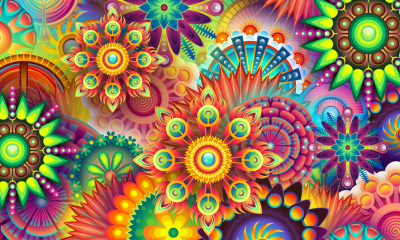 Last month we wrote about a recent registration of the term PSILOCYBIN for educational materials related to psychoactive plants. The point of our article was that applying for generic terms as trademarks is not the most effective strategy for developing a distinctive brand. Now, sadly, a flurry of coronavirus-related trademark applications raises similar concerns. In a recent article, “No, Seriously, Don’t Try to ‘Trademark’ Coronavirus”, a Law360 article (possible paywall), the author makes a similar point, concluding that many of the trademark applicants really don’t understand what they are doing. But, we digress.
Last month we wrote about a recent registration of the term PSILOCYBIN for educational materials related to psychoactive plants. The point of our article was that applying for generic terms as trademarks is not the most effective strategy for developing a distinctive brand. Now, sadly, a flurry of coronavirus-related trademark applications raises similar concerns. In a recent article, “No, Seriously, Don’t Try to ‘Trademark’ Coronavirus”, a Law360 article (possible paywall), the author makes a similar point, concluding that many of the trademark applicants really don’t understand what they are doing. But, we digress.
Trademarks vs. Patents for Psychedelics
What we didn’t address in last month’s PSILOCYBIN article was whether, in fact, it is possible to obtain a trademark registration for psychedelic goods or services (e.g., psilocybin, LSD, datura, etc.) whether or not they are reputably therapeutic.
The answer to this question is the same for psychedelics as for cannabis, i.e., marijuana. Psychedelic substances, like cannabis products, fall into the category of Schedule 1 drugs, that is, they are illegal under federal law. The U.S. Patent and Trademark Office (USPTO) takes a rather schizophrenic view of Schedule 1 related inventions and trademarks. For example, one can obtain a patent on a new cannabis-related device or formulation irrespective of the legality of cannabis but one cannot obtain a registered trademark for the same invention if it involves use of an illegal substance. The key is “use.” A trademark registration is predicated upon actual and current use of the product identified by the trademark. Actual “use” in connection with issuance of a patent is irrelevant.
Patenting psychedelic related inventions, therefore, is permissible. In a recent article by Dr. Gretchen Temeles, describing the recent trend towards commercialization of psychedelic therapeutics, writes about the patentability of psychedelic-related inventions:
The Schedule I status of cannabis and psychedelic compounds is not relevant to patentability. The United States Patent and Trademark Office (USPTO) routinely grants patents covering cannabis and psychedelics. Patent examination is carried out according to the same standards applied to other technologies. The claims must be new, useful and not obvious and the application must teach one of ordinary skill in the art how to make and use the invention — nothing more and nothing less.
Why Are Trademarks for Psychedelics So Rare?
But on the trademark side, there are few registrations and applications for psychedelic related trademarks. As an example, a search of the PTO’s trademark database (TESS) revealed 30 active trademark applications and registrations that incorporate the term “psychedelic” in the description of goods and services. Although some of these are related to clothing and music, others are related to psychedelic goods or services. Those applications that involve the use of psychedelic substances will likely not mature into registrations. On the other hand, applications related to the providing of educational services may, indeed, eventually be registered. When one provides an educational or informational service, it does not necessarily entail actual use or handling of an illegal substance. There are many cannabis-related service marks that fit into this category and there is no reason why a trademark that identifies a psychedelic-related service would not be registrable. But beware, as we warned in our previous cannabis article:
The PTO generally does not inquire as to the legality of an applicant’s use of a trademark but it can and will do so if the record demonstrates or suggests a violation of the law…including the Controlled Substances Act.
The Future of Psychedelic Trademarks
Should changes to the Schedule 1 status of cannabis and psychedelics occur, the trademark landscape will surely change, too. The likelihood of such changes that relate to cannabis are high given the changing legal landscape in the many states that have legalized cannabis for medical and recreational purposes. Changes related to psychedelic substances may have to wait until their medical benefits are better understood and more widely accepted.

